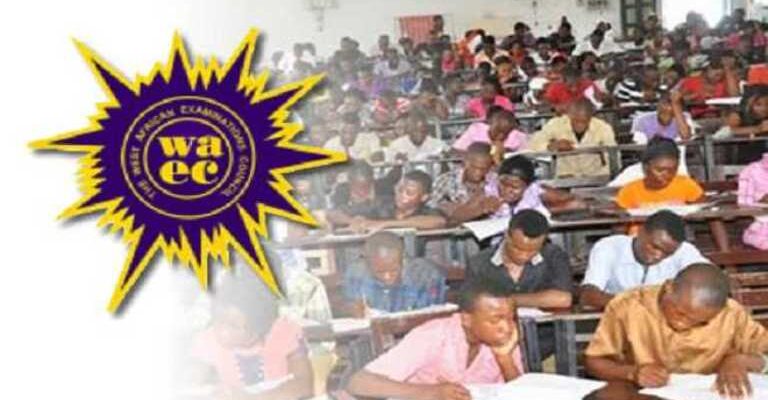Widespread alarm has greeted the release of the 2025 West African Senior School Certificate Examination (WASSCE) results, following an unprecedented 33.8% drop in candidate performance. According to the West African Examinations Council (WAEC), only 754,545 out of the 1,969,313 students who sat for the examination — representing just 38.32% — secured credits and above in at least five subjects, including the all-important English Language and Mathematics.
This sharp decline from the 72.12% recorded in 2024 has raised serious concerns across the country, with parents, teachers, student bodies, and other education stakeholders describing the outcome as a national embarrassment and a clear sign of deeper systemic failure.
Speaking on the development, a concerned parent from Imo State, Oluchi Kalu, expressed dismay over the results but said she wasn’t surprised, considering the poor conditions under which many students wrote their exams. She described how students in her area sat for their papers in pitch-dark classrooms, relying on candles and phone torchlights due to widespread power outages. According to her, students were made to wait for hours — some even till late in the night — to take exams like English Language, which she said should never have happened without adequate arrangements being made.
“These children wrote the most important paper of their lives under terrible conditions,” Kalu said. “Some of them left home as early as 6 a.m., expecting to return by midday, only to get back after 9 p.m., exhausted and confused. The psychological stress alone was enough to affect their performance.”
She added that her neighbors’ children returned home crying after their papers, while teachers appeared equally frustrated but helpless in the situation. Kalu recommended the urgent organisation of mock examinations across the country to help affected students rebuild their confidence and prepare under better conditions.
The Nigeria Union of Teachers (NUT) also weighed in on the issue, describing the situation as a reflection of Nigeria’s broken education system. Chairman of the Lagos State wing, Comrade Akintoye Hassan, said the Council’s handling of the leaked English Language paper — which saw students delayed for hours and writing late into the night — was both unprofessional and unfair. He argued that students, who had mentally prepared to sit for their papers in the morning, were destabilized by the last-minute changes. Many were not allowed to leave the exam venues, and some did not have access to food or water throughout the waiting period.
Comrade Hassan also pointed to the absence of basic infrastructure in many public schools, such as electricity and functional classrooms. According to him, asking students to write such a critical examination in near-darkness was not only insensitive but also detrimental to their overall performance. He stressed that blaming teachers for the poor results would be misguided, as there were several underlying issues that go far beyond the classroom. He noted that many students now see education merely as a means to basic literacy and no longer as a pathway to meaningful employment or advancement, especially when they see graduates resorting to menial jobs just to survive.
The National Association of Nigerian Students (NANS) echoed similar sentiments, highlighting how the exam period, particularly the English Language paper, was marred by emotional and mental exhaustion. The association’s National PRO, Comrade Adeyemi Ajasa, described the conduct of the paper as “horrific,” noting that the candidates were completely drained before even attempting the questions. He said such conditions were bound to produce poor results, as students were not in the right frame of mind to concentrate or think critically.
Ajasa added that the technical hitches observed during this year’s examination were reminiscent of those seen during the Unified Tertiary Matriculation Examination (UTME), showing a consistent failure in how national examinations are administered. According to him, what the education sector urgently needs is a comprehensive review — one that looks at not just the exams themselves, but also the conditions under which learning and assessments take place. He called for improved teacher training, better pay and incentives, and the provision of modern learning tools and infrastructure across the country.
Also commenting on the situation, the National President of the National Parent Teacher Association of Nigeria (NAPTAN), Alhaji Haruna Danjuma, said the poor WASSCE performance was not entirely surprising given the various issues plaguing education in the country. He questioned whether most public schools even have enough teachers to adequately prepare students for such exams. According to him, many states have failed to hire new teachers to fill vacancies, leaving schools understaffed and overstretched.
Danjuma also lamented the rising cost of educational materials, pointing out that many parents can no longer afford to buy textbooks or pay for extra lessons due to the worsening economic situation. This, he said, leaves children poorly equipped to meet exam demands. He stressed that the government must begin to take the education sector more seriously, especially as the future of millions of young Nigerians now hangs in the balance.
He further emphasized that teacher welfare must be prioritized if Nigeria hopes to reverse the current trend. “When a teacher goes to school thinking about how to pay rent or feed his family, how can he give his best to the students?” he asked. Danjuma also called on parents to show more interest in their children’s academic lives, arguing that education must be a shared responsibility between the home and the school.
Across the board, the call for reform has been loud and urgent. Stakeholders agree that what the country is witnessing is not just a one-time failure but the outcome of years of systemic neglect, underfunding, and misplaced priorities. They are calling for an immediate, holistic overhaul of the sector, with a focus on infrastructure, teacher recruitment, student support, and policy consistency.
As the nation grapples with the implications of the WASSCE 2025 results, many fear that unless drastic steps are taken, the country risks slipping deeper into an education crisis — one that may take decades to undo.

Comments